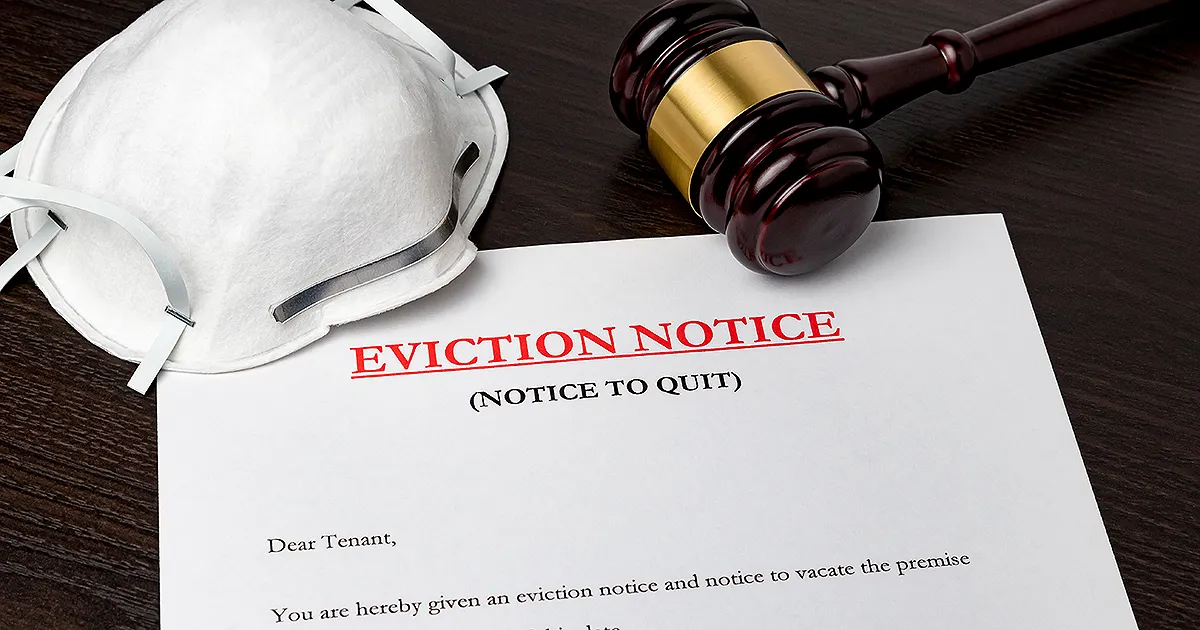Receiving or issuing an eviction notice in Indiana can be a stressful experience for both tenants and landlords. However, understanding the legal process and requirements can make the situation more manageable. This guide will cover everything you need to know about an eviction notice in Indiana—from the basics of eviction laws to the step-by-step process for both parties.
Whether you’re a landlord who needs to evict a tenant or a tenant who has received an eviction notice, it’s essential to know your rights and responsibilities. This article breaks down the process, requirements, and tips to navigate Indiana’s eviction laws smoothly.
What is an Eviction Notice?
An eviction notice is a legal document that a landlord sends to a tenant to begin the process of eviction. In Indiana, this notice informs the tenant that they need to either comply with certain terms or leave the rental property by a specified date. The most common reasons for an eviction notice in Indiana include unpaid rent, lease violations, or illegal activities on the property.
Landlords must follow specific rules and timelines to issue an eviction notice legally. Failing to do so can lead to delays or even dismissal of the eviction case in court. Understanding the type of eviction notice required is crucial to making the process as straightforward as possible.
Types of Eviction Notices in Indiana
In Indiana, eviction notices come in different forms, depending on the reason for eviction. Here’s a breakdown of the main types:
1. Pay or Quit Notice
A “Pay or Quit” notice is given to a tenant when they have missed rent payments. This notice usually allows the tenant a specific amount of time to pay the overdue rent. If the tenant pays the rent within this period, they can stay. However, if they don’t pay, the landlord can proceed with the eviction process.
- Purpose: Non-payment of rent
- Time to Comply: Generally, 10 days in Indiana
2. Cure or Quit Notice
If a tenant has violated the lease terms (other than non-payment of rent), the landlord may issue a “Cure or Quit” notice. This gives the tenant a chance to “cure,” or fix, the issue within a certain period. If the tenant fails to comply, the landlord can continue with eviction.
- Purpose: Violation of lease terms
- Time to Comply: Variable, depending on the lease agreement
3. Unconditional Quit Notice
An Unconditional Quit notice is more serious. In Indiana, this type of notice may be used when a tenant has committed severe violations, like illegal activity on the property, repeated lease violations, or significant property damage. With this notice, the tenant is required to leave without the option to correct their behavior.
- Purpose: Serious lease violations or illegal activities
- Time to Comply: Immediate in most cases
4. Notice to Vacate
If a landlord does not wish to renew a lease at the end of its term, they can issue a Notice to Vacate. This is not technically an “eviction notice,” but it does inform the tenant that they need to leave the property by a specific date once the lease ends.
- Purpose: End of lease term
- Time to Comply: Generally, 30 days’ notice is required
Legal Requirements for an Eviction Notice in Indiana
In Indiana, landlords must follow a specific legal process when issuing an eviction notice. Here’s what landlords need to know to ensure their notice is legally valid:
- Provide Written Notice: Indiana law requires the eviction notice to be in writing. A verbal notice is not enough.
- Include Necessary Details: The notice should clearly state the reason for eviction, the amount of time the tenant has to resolve the issue, and any actions they need to take.
- Deliver Properly: Landlords can deliver an eviction notice personally, post it on the property, or send it through certified mail.
Landlords should double-check the terms of the lease agreement and consult Indiana state law to make sure they’re following the proper steps.
The Eviction Process in Indiana: Step-by-Step Guide
Eviction is a legal process, and landlords must go through the courts to remove a tenant forcibly. Here’s a step-by-step look at how the process works in Indiana:
Step 1: Issue the Eviction Notice
The landlord starts the eviction process by issuing the appropriate eviction notice. The notice should specify the reason for eviction and give the tenant a timeline to resolve the issue or vacate the property.
Step 2: Wait for Tenant Response
The landlord must wait until the notice period ends. If the tenant resolves the issue (such as paying rent or fixing a lease violation), the eviction may be stopped. If they do not comply, the landlord can move forward.
Step 3: File an Eviction Lawsuit
Suppose the tenant does not respond to the eviction notice in Indiana. In that case, the landlord can file an eviction lawsuit, known as a “forcible entry and detainer” action, at the local court. This requires submitting a complaint and paying a filing fee.
Step 4: Attend the Court Hearing
Both the landlord and tenant will receive a date for a court hearing. At this hearing, the judge will listen to both sides and make a decision. If the judge rules in favor of the landlord, they will issue a “writ of possession,” allowing the landlord to reclaim the property.
Step 5: Enforcement of Eviction
If the tenant does not leave voluntarily after the court order, the landlord can work with local law enforcement to enforce the eviction. The authorities may physically remove the tenant from the property.
Tenant Rights During an Eviction in Indiana
Tenants have certain rights during the eviction process in Indiana. It’s essential to understand these rights to ensure fair treatment and avoid unlawful eviction practices.
Right to Due Process
Tenants have the right to receive a proper eviction notice in Indiana. This includes written notice with a specific reason and a clear timeline to comply. Without this, the eviction may not be valid.
Right to Contest the Eviction
Tenants can contest an eviction in court if they believe it’s unfair or unlawful. For instance, if the landlord didn’t follow proper procedures or if the tenant believes the eviction is retaliatory, they can present their case to a judge.
Right to Stay Until Court Decision
Until the judge rules on the case, tenants have the right to remain in the property. They cannot be forced to leave until the court issues an order.
Right to Request Mediation
Sometimes, tenants and landlords can resolve their issues outside of court through mediation. This can save both parties time and money and may result in a mutually beneficial solution.
Landlord Rights and Responsibilities in the Eviction Process
Landlords in Indiana also have rights and responsibilities when dealing with an eviction notice. Here’s what they should keep in mind:
Right to Collect Rent or Damages
If a tenant owes unpaid rent or has caused damage to the property, landlords have the right to seek compensation through the eviction process.
Responsibility to Follow Proper Procedures
Landlords are required to follow all legal procedures, including issuing a proper eviction notice in Indiana and respecting the tenant’s rights throughout the process. Failing to follow these procedures can delay the eviction or lead to dismissal of the case.
Prohibition Against Self-Help Evictions
In Indiana, landlords are prohibited from taking matters into their own hands by locking tenants out, removing their belongings, or cutting off utilities. All evictions must go through the court system.
Common Defenses Against an Eviction Notice in Indiana
If a tenant feels an eviction notice in Indiana is unjust, they may have legal grounds to contest it. Here are some common defenses that tenants use:
- Improper Notice: The landlord did not follow the correct legal procedures for the eviction notice.
- Lack of Proof: The landlord has no evidence for the reason stated in the notice, such as unpaid rent or property damage.
- Retaliatory Eviction: The landlord is evicting the tenant as revenge for reporting health or safety violations.
- Discrimination: The eviction is based on discrimination, which is illegal under federal law.
Sample Timeline for Eviction Process in Indiana
Below is a general timeline of the eviction process in Indiana. Keep in mind that each case may vary.
| Step | Description | Time Frame |
|---|---|---|
| Issue Eviction Notice | Landlord gives written notice to tenant | Varies (10–30 days) |
| Wait Period | Tenant has time to comply with or contest the notice | Depends on notice type |
| File Lawsuit | Landlord files complaint if tenant does not comply | Typically after notice period |
| Court Hearing | Both parties present case to judge | Within 1–2 weeks of filing |
| Writ of Possession | Court issues order for tenant to leave if landlord wins | 48 hours to several days |
| Enforcement | Law enforcement removes tenant if necessary | After court ruling |
Frequently Asked Questions (FAQs)
How much notice does a landlord need to give a tenant to move out in Indiana?
In most cases, Indiana landlords must provide at least a 10-day notice for unpaid rent. For other lease violations, the notice period may vary, often specified in the lease agreement.
Can a tenant stop an eviction in Indiana?
Yes, a tenant can stop an eviction by either complying with the eviction notice in Indiana or by contesting it in court if they believe it’s unjust.
Can landlords evict tenants during winter in Indiana?
Yes, landlords can evict tenants during winter if there are grounds for eviction. Indiana law does not prevent evictions based on the time of year.
What should a tenant do if they receive an eviction notice?
Tenants should first read the eviction notice carefully to understand the reason and timeline. They can then decide whether to comply, negotiate with the landlord, or contest the eviction in court.
Conclusion
Navigating an eviction notice in Indiana can be challenging, but knowing the landlords’ and tenants’ rights and responsibilities can make the process smoother. By following Indiana’s legal guidelines and working to resolve issues fairly, both parties can reduce stress and avoid unnecessary conflicts. Remember, clear communication and mutual respect can often prevent eviction situations altogether.




